Suchergebnisse für "Factsheet%3A Energietechnologien gestalten%2C die f%C3%BCr alle sinnvoll und nutzbar sind"
Anergy2Plus - Demonstration and expansion of an anergy network as part of a holistic energy concept and plus energy quarter
The overall objective of the project is to pursue and demonstrate a holistic approach to the design, construction and ultimately the use of the residential quarter in the context of energy supply. Especially in the area of thermal energy supply, a project with lighthouse character on the way to a plus-energy quarter is to be created by demonstrating the innovative supply concept based on an anergy network.
Solarunterstützte Wärmenetze
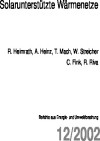
Schriftenreihe
12/2002
W. Streicher
Deutsch, 234 Seiten
Downloads zur Publikation
Wirtschaftsfaktor Sonnenenergie
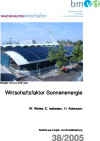
Schriftenreihe
38/2005
W. Weiss, C. Isaksson, H. Adensam
Deutsch, 84 Seiten
Downloads zur Publikation
Passivhaus Schulungunterlagen
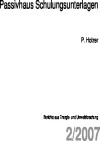
Schriftenreihe
02/2007
P. Holzer
Herausgeber: BMVIT
Deutsch, 60 Seiten
Downloads zur Publikation
Ausbildungsoffensive Komfortlüftung
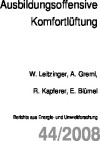
Schriftenreihe
44/2008
W. Leitzinger, A. Greml, R. Kapferer, E. Blümel
Deutsch, 89 Seiten
Downloads zur Publikation
Behagliche Nachhaltigkeit
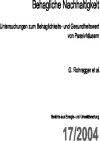
Schriftenreihe
17/2004
G. Rohregger
Deutsch, 148 Seiten
Downloads zur Publikation
Energiezentrale Alpendorf
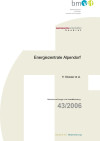
Schriftenreihe
43/2006
H.Strasser
Deutsch, 93 Seiten
Downloads zur Publikation
Sanierung PRO!
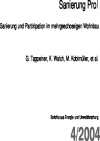
Schriftenreihe
04/2005
G. Tappeiner, K. Walch, M. Koblmüller, et al.
Deutsch, 236 Seiten
Downloads zur Publikation
Sunny Research
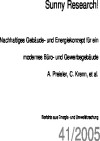
Schriftenreihe
41/2005
A. Preisler, C. Krenn, et al.
Deutsch, 294 Seiten
Downloads zur Publikation
S - House
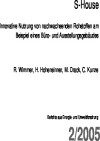
Schriftenreihe
02/2005
R. Wimmer, H. Hohensinner, M. Drack, C. Kunze
Deutsch, 180 Seiten
Downloads zur Publikation
Market oriented sustainable ROI-Contracting
Concept for launching of a new business unit or an independent ROI-Contracting Consulting with effects on sustainable development.
Solar Heating And Cooling in Austria (Faninger, 2009)

Status Report 2009 on Research, Development and Market Deployment of Solar Thermal Technologies in Austria. Presented to the IEA Solar Heating and Cooling Programme in July 2009
Reconstruction ecological Freihof Sulz

integral reconstruction of the valuable cultural heritage "Freihof Sulz" to a communication- and action centre; Demonstration project for local culture and life quality, old building techniques, energy saving and ecological reconstruction."
Gas supply by local mircro grids
Proof of the technical and economic feasibility of the utilization of fermentation gas from agricultural fermentation gas facilities by means of local micro grids.
IEA SHC Task 60 - Industry Workshop Photovoltaic/thermal (PVT) Systems
08. May 2019
University of Technology, Eindhoven, NL
The international public workshop on PVT technology provides the opportunity to learn about the latest developments in international research, development and commercialisation of PVT-Systems.
Smart Metering consumption
The project Smart Metering consumption focused on the energy consumption of the future smart metering infrastructure - an issue not widely discussed until now.
Bio-Minimum-Lubrication
Development of a Minimum quantity lubrication system employed in metal working industry using an oil-in-water emulsion based on renewable primary products.
RAILWASTE - Production of railway sleepers by mixed plastic waste (SUSPRISE Joint Call)
Production of railway crossties ("sleepers") from an alternative (renewable) raw material
Strategy development for (technical / economical feasibility of) energy autarcic buildings
Development of a strategy for energy autarcic buildings with appropriate Technology solutions.
Innovative Nutzung Österreichischer Ofenbautechnologie Für Eine Nachhaltige Entwicklung
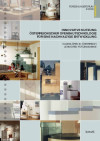
Kachelöfen in Österreich - Lehmöfen in Zimbabwe
Forschungsforum
2/2000
Herausgeber: BMVIT
Deutsch, 6 Seiten
